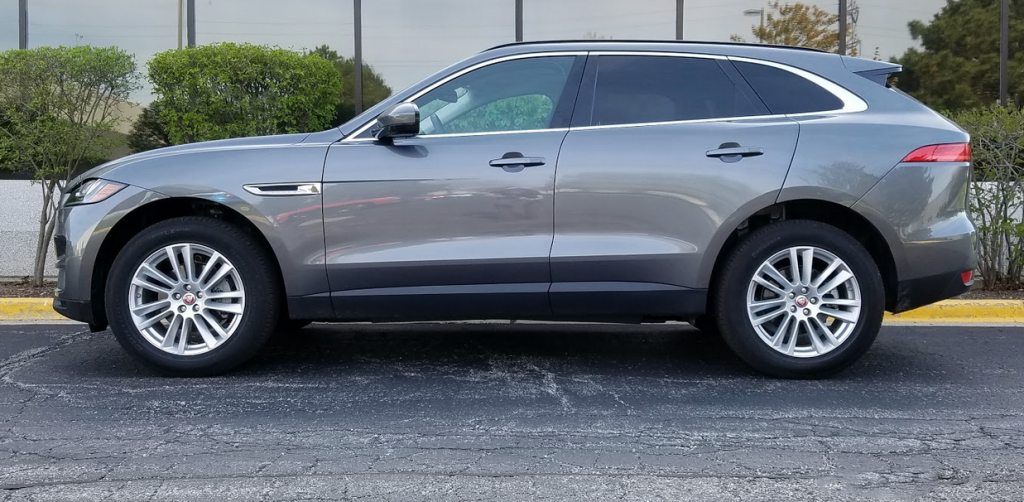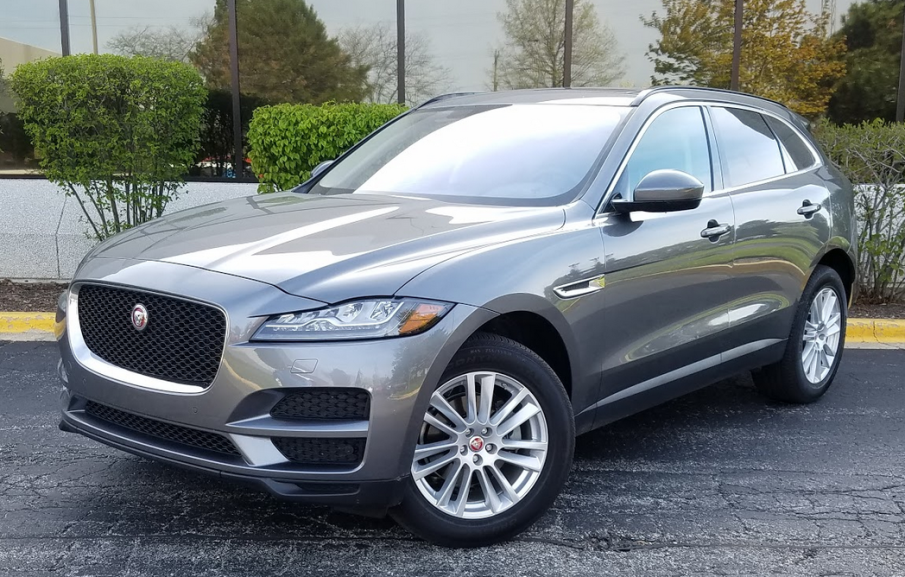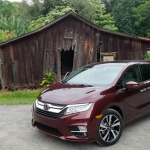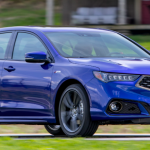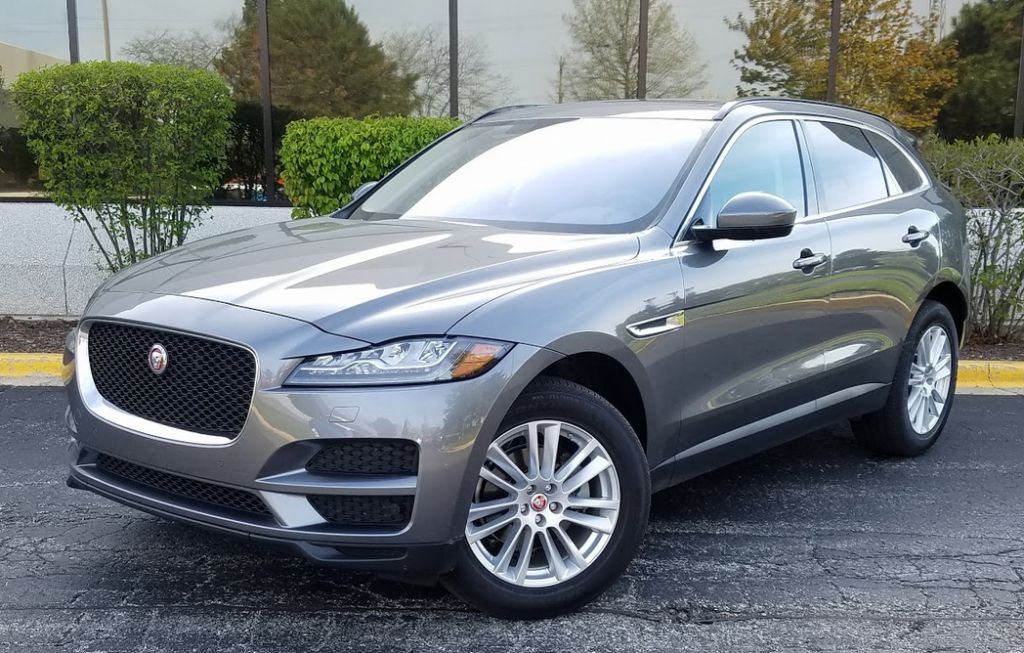
2017 Jaguar F-Pace 20d Prestige 
Class: Premium Compact Crossover
Miles Driven: 501
Fuel Used: 14.4 gallons
Real-world fuel economy: 34.8 mpg
Driving mix: 30% city, 70% highway
EPA-estimated fuel economy: 26/33/29 (city, highway, combined)
| CG Report Card | |
|---|---|
| Room and Comfort | B- |
| Power and Performance | B |
| Fit and Finish | A- |
| Fuel Economy | A |
| Value | B- |
| Report-card grades are derived from a consensus of test-driver evaluations. All grades are versus other vehicles in the same class. Value grade is for specific trim level evaluated, and may not reflect Consumer Guide's impressions of the entire model lineup. | |
| Big & Tall Comfort | |
| Big Guy | B- |
| Tall Guy | A- |
| Big & Tall comfort ratings are for front seats only. "Big" rating based on male tester weighing approximately 350 pounds, "Tall" rating based on 6'6"-tall male tester. | |
Base price: $49,700 (not including $995 destination charge)
Options on test car: (Note: Vehicle tested was an early-production model–optional-equipment pricing and package content may have changed on current-production vehicles. The following prices are estimates.) Special paint ($495 est.), Gloss Black Package ($360 est.), Vision Package ($2350 est.), Technology Package ($3265 est.), Comfort and Convenience Package ($1840 est.), satellite radio ($NA), heated front windshield ($NA)
Price as tested: $60,000 (est.)
Quick Hits
The great: Good power, impressive fuel economy
The good: Upscale cabin, sporty handling
The not so good: Limited center-console space
More Jaguar F-Pace price and availability information
John Biel
There may be just one Jaguar sport-utility vehicle but it has multiple facets. The F-Pace, which makes its debut in 2017, can be luxurious, it can be aggressive when outfitted with a supercharged V6, or it can be fairly frugal between fill-ups with a turbocharged diesel 4-cylinder engine under the hood. Consumer Guide® editors have seen all those facets now after driving a V6 35t R-Sport and, more recently, a turbodiesel 20d Prestige.
Test Drive: 2017 Jaguar F-Pace 35t R-Sport
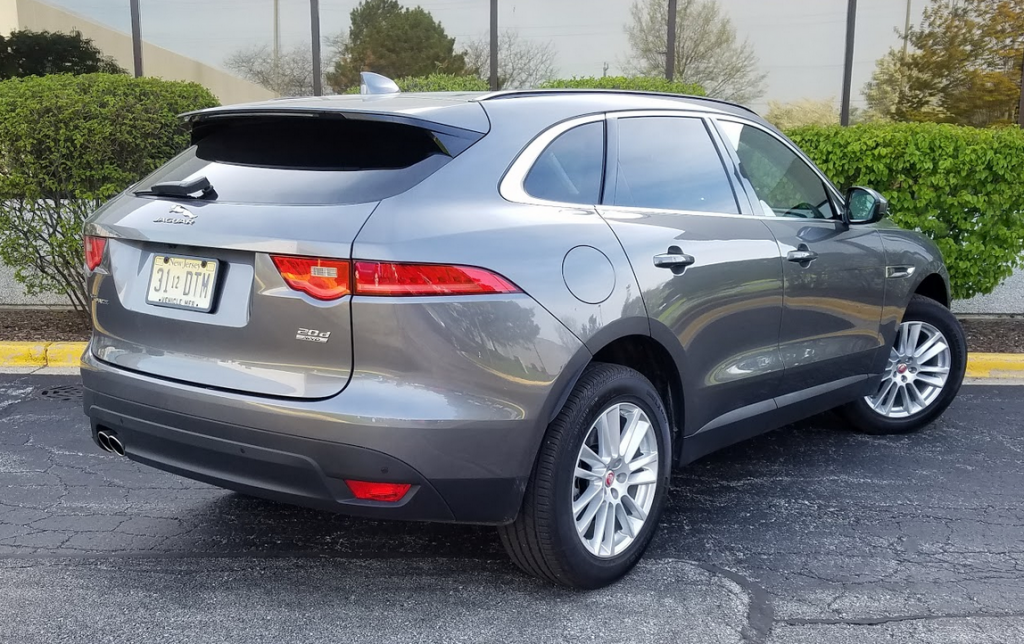
The 20d’s 2.0-liter powerplant makes 180 horsepower at 4000 rpm. It’s easily the slowest F-Pace. (Jaguar claims a 0-60-mph time of 8.2 seconds, which makes the diesel 2.8 seconds slower than its nearest V6 gasoline running mate.) However, the 20d does a good job of masking this with 318 lb-ft of torque that peaks in the 1750-2500-rpm range. The 340-horse blown V6 in the previously tested R-Sport is rated at 332 lb-ft, so the little “oil burner” has the goods for crisp getaways when the stoplight turns green—even if it does so with some noticeable diesel grumble. For what it’s worth, a “Dynamic” mode in the JaguarDrive Control gives the diesel F-Pace a little bit more gumption but hardly enough to make it a fire-breather.
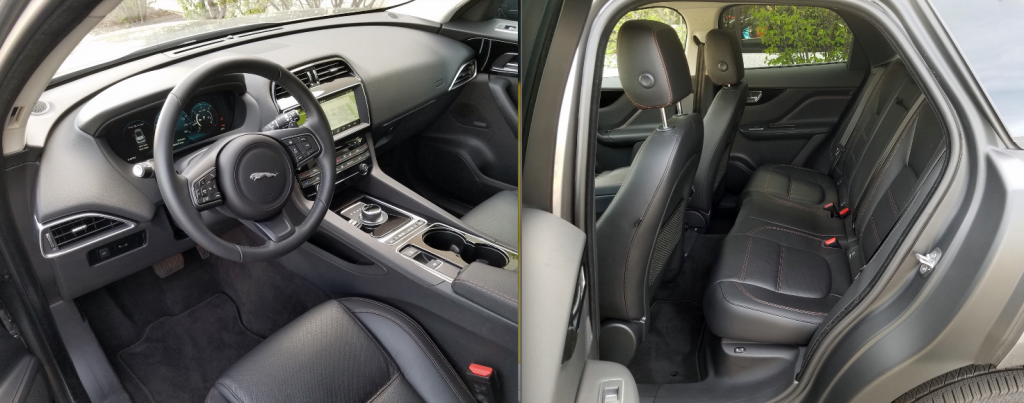
What’s really different about the turbodiesel is its long-haul capability. Channeled through a smooth 8-speed automatic transmission, it is rated by the EPA at 26 mpg in the city, 33 mpg on the highway, and 29 combined. Those numbers are solidly better than the estimates for the V6. Better yet, CG was able to beat them. Operating in a mix of Dynamic- and Normal-mode driving, and with the stop/start feature activated most of the time, this tester averaged 37.2 mpg at the end of a 349-mile stint that involved a trip between Chicago and Milwaukee and kept city-style driving to 25 percent of the total. At the end of the run the gauge was still showing that three-fifths of the fuel load remained (the 20d has a 15.9-gallon tank), suggesting a range of almost 600 miles under those conditions.
Test Drive: 2016 Lexus NX 200t F Sport
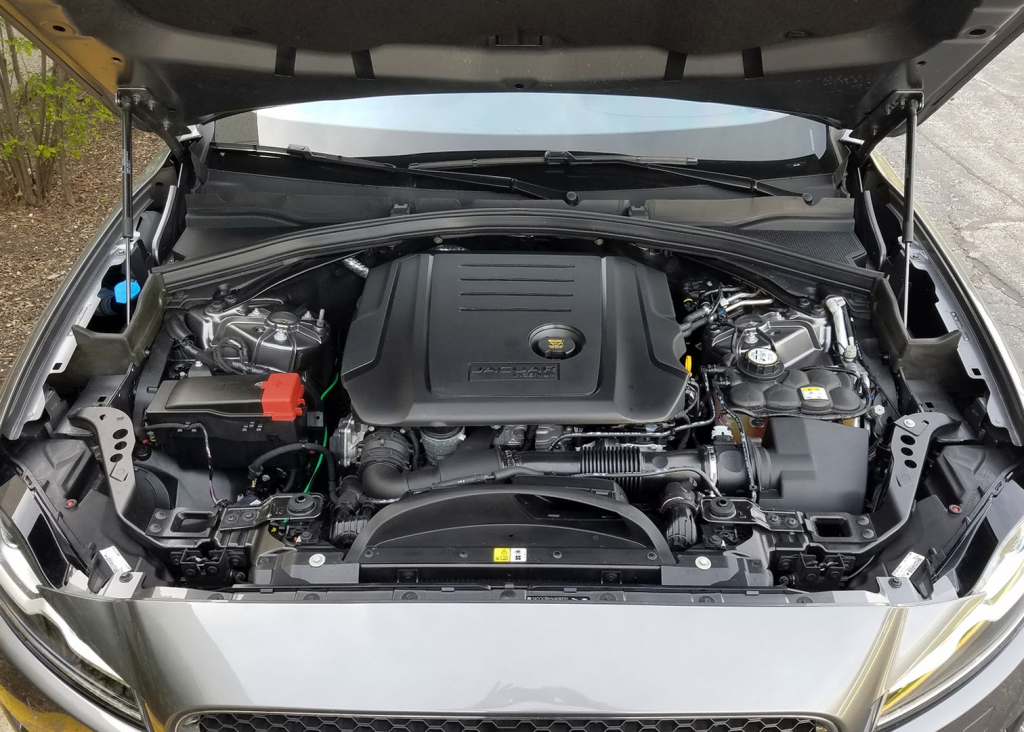
The premium-compact field on which the F-Pace plays is hardly the place for highly bottom-line-conscious SUV shoppers. With Prestige trim, the F-Pace 20d starts at $49,700. (Of the four turbodiesel models only the R-Sport costs more, and V6 base prices rise as high as $69,700 for the First Edition version.) In addition to the powerteam and all-wheel drive, other standard items include “All Surface Progress Control” (a low-speed cruise control used in reduced-traction conditions), brake-enabled torque vectoring, 19-inch alloy wheels, leather upholstery, heated 10-way-adjustable front seats (with memory function for the driver’s seat), 40/20/40 folding rear seat, heated steering wheel, keyless entry and starting, panoramic moonroof, rearview camera, dual-zone climate control, InControl Touch infotainment and smartphone-connectivity system, navigation, Meridian sound system, and front and rear parking aids.
A fair number of optional items were added to CG’s test truck. Stand-alone extras included Ammonite Grey Metallic paint, gloss-black roof rails, satellite radio, and a heated windshield. A trio of packages—Vision, Technology, and Comfort and Convenience—added items like blind-spot monitor and rear cross-traffic alert; InControl Touch Pro with a SD-card-enabled navigation, a larger 10.2-inch touchscreen, and WiFi; a virtual instrument display; heated power-adjustable rear seats; and a gesture-activated tailgate.
The 5-passenger crossover with an aluminum-intensive body structure is an offshoot of the platform created for the XE compact sedan. The F-Pace is quite maneuverable, with responsive steering that displays even finer control in Dynamic mode. Ride can be slightly choppy. Bigger bumps may register with passengers, but they don’t seem to rattle the tight body structure. Braking is quick and predictable.
Test Drive: 2017 Mercedes-Benz AMG GLC43
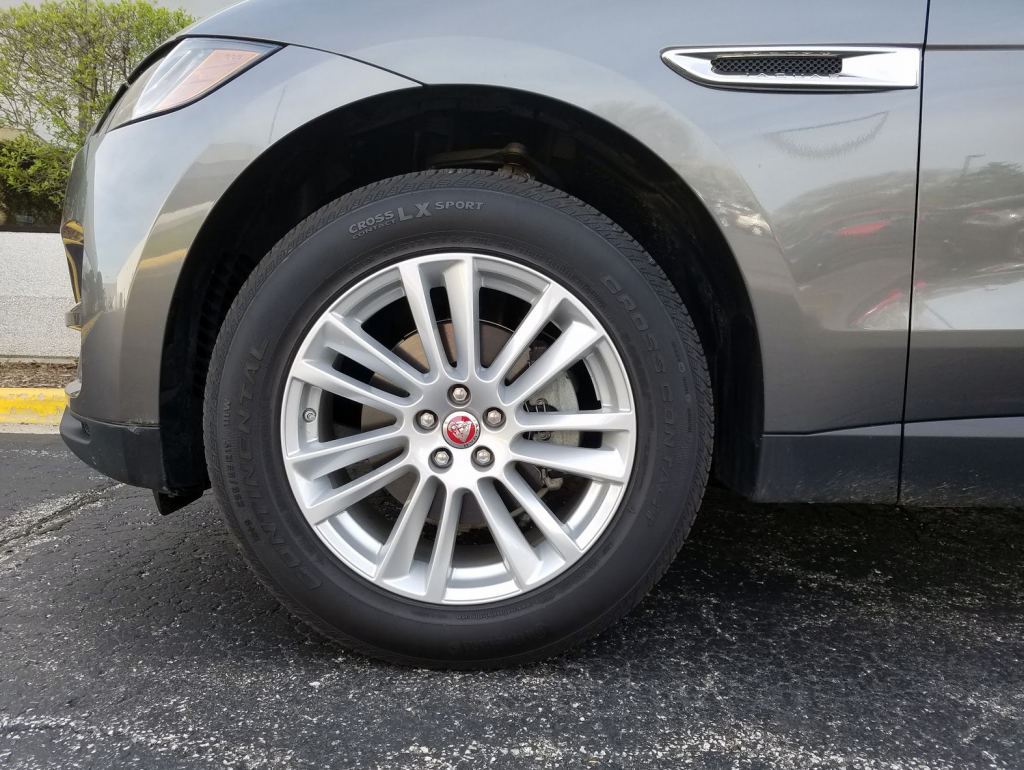
Driving and comfort/convenience controls are generally legible, and easy to access and use. A vehicle-information display placed between the speedometer and tachometer can be scrolled by thumb buttons on the steering wheel. Audio, navigation, and other functions show up on the touchscreen that presents clear choices with fairly intuitive operation. The climate controls exist as a double row of push buttons below the touchscreen—though some functions are handled on the screen with Touch Pro.
An ample glove box is offset by a console box with limited capacity. Considering that the latter houses auxiliary and USB ports, a card slot for the navigation system, and a power point, there’s little wonder that sparse room is left for storage. Map pockets—slightly larger in front than in the rear—are found in all doors. Net pouches are affixed to the backs of the front seats. Two cup holders in the console serve front passengers; two more in the pull-down center armrest meet the needs of rear-seat passengers.
Seats are comfortable. Front legroom is better than the legroom in back. Two adults will fit in the second row without being cramped, providing front passengers don’t need all of their available space. Headroom is good in both rows. Pliable soft-touch surfaces are found on the dash and a good portion of each door panel.
Rear cargo capacity is generous, and load height isn’t inordinately high. A wide liftgate opening also facilitates loading. Rear seats easily fold flat to create a very large cargo floor—a process made all the more convenient with remote seat releases that are included in the Comfort and Convenience Package. The cargo-floor mat is reversible, with a carpeted side for normal loads and a rubberized side for dirtier jobs.
All in all, Jaguar seems to have done its homework well in developing its first SUV by producing a vehicle with many agreeable sides to its character.
